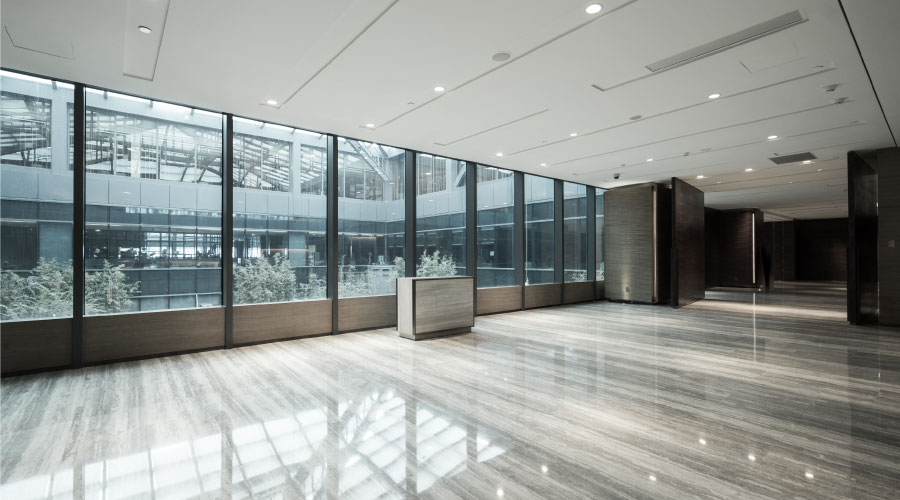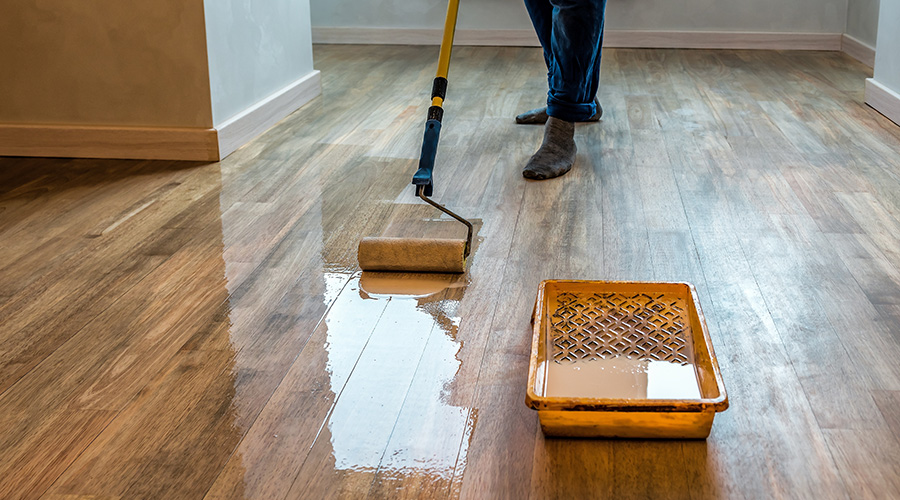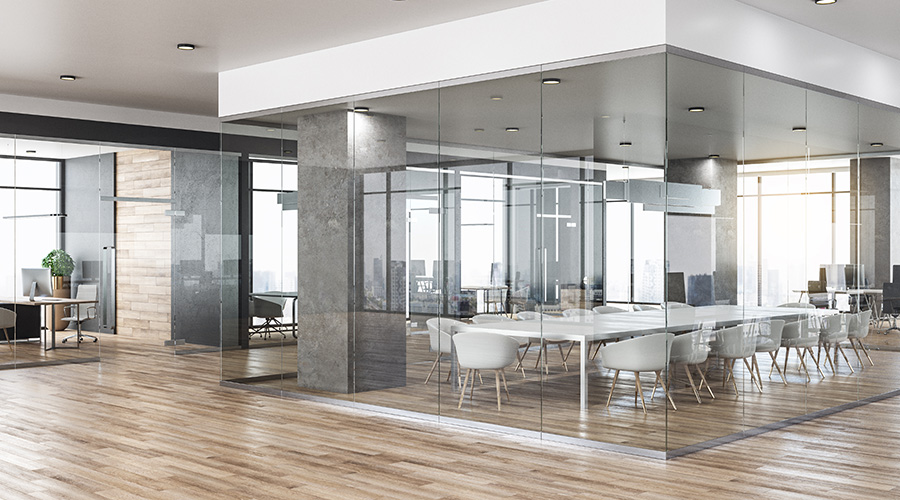Options for Hard-Surface Flooring Include Vinyl
Hard-surface flooring has always seen significant use in the commercial market, but its use has grown substantially over the last several years. Vinyl — which we'll focus on in this article — as well as ceramic, stone, and wood especially have seen double-digit (or near) growth, and there has been an increase in treated concrete substrates as well. But a wide range of hard-surface flooring materials exists, and each type of product has different characteristics and performance levels, so it's important to know which product will best suit your needs. Whether the installation site of the flooring is in a school, healthcare facility, retail location, or corporate space, you have to qualify the product for the application.
Hard-surface flooring includes any flooring material that is not carpet. Some of those materials are resilient — that is, they possess the ability to recover or "spring back" from compression, to varying degrees. These resilient options include vinyl, rubber, cork, or linoleum flooring materials. Other types of hard surface flooring materials are wood, stone, and concrete.
A quick review of each of the major product types follows; we'll start with vinyl.
VINYL. One of the longest performing resilient flooring materials is vinyl composition tile, or VCT. This product has been around since the early 1950s and has been chosen for its high performance in heavy traffic areas, low cost, durability, and ease of maintenance. VCT has been used extensively in grocery stores and schools and can deliver extraordinary performance for decades.
One of the downsides of VCT is the effect of weight or compression on the material. Once indented, the material is affected forever. This can be the result of heavy fixtures or furnishings.
Vinyl flooring is also popular as sheet goods, typically 6 feet wide. This type of flooring is common in hospitals and schools. Sheet vinyl flooring requires heat welded or chemically sealed seams.
One of the hottest categories of hard surface flooring products is luxury vinyl tile or planks. This material is still vinyl flooring but it can be made to look like most anything, including wood, stone, or metal. It brings a new level of beauty and style to vinyl flooring. Luxury vinyl tile or plank is much more sophisticated and fashionable and exudes a richness that has eluded hard surface flooring.
One of the biggest problems with vinyl flooring material, particularly sheet goods in hospitals, is the effect of heavy beds with thin wheels and obese patients. The amount of weight exerted in a very small area beneath the bed wheels can permanently indent the flooring and even affect the concrete substrate, especially when the latter is prepped with a cementitious leveling or patching material. Not only is the flooring indented, but the cementitious material is also broken up beneath it, creating an irreparable and unsightly condition. In a school, furniture with inappropriate feet can also damage vinyl flooring.
Related Topics:













